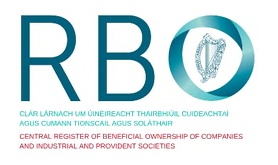
by John McCarthy Consulting Ltd. | Nov 10, 2024 | Blog, News
The Chartered Accountants Ireland issued their AML Supervision Report for 2023/24 recently. The Institute supervises almost 1,700 firms, of which 72% (1,222 firms) are in the RoI.
It is apparent from the report that some of the future emerging risks arising from the 2023/24 AML supervision cycle include:
- Crypto currency – a very limited number of firms have exposure to this risk;
- The increasing prevalence of artificial intelligence – there is so much that is unknown about how AI may be used to facilitate money laundering;
- Money laundering or investment scams associated with green finance;
- The continued potential for post-Covid fraud such as that arising from the Restart/Bounce Back loans and Income Support Schemes continues to exist, and it remains a continuing risk especially for the insolvency profession;
- Issues arising from the Ukraine crisis also remain in focus – although media interest in the ongoing war has waned, there is still the concern of displacement activity relating to sanctioned individuals and entities.
The Report identifies various risk factors to which accountancy firms may be exposed, including but not limited to the following:
- Higher risk services;
- Higher risk clients;
- Exposure to high-risk jurisdictions;
- Complex firm structures; and
- Poor regulatory history.
There will be more extracts from this interesting report in the coming weeks.
For more on engagement and representation letter templates and a variety of CPD webinars on money laundering and other accounting/audit related topics, please go to our website for:
ISQM TOOLKIT, or if you prefer to chat through the different audit risks and potential appropriate responses presented by this new standard. We typically tailor ISQM training and brainstorming sessions to suit your firm’s unique requirements. Please contact John McCarthy FCA by email at john@jmcc.ie.

by John McCarthy Consulting Ltd. | Nov 10, 2024 | Blog, News
As we saw in last week’s blog almost 42,000 companies (14%) and 239 Societies (25%) were non-compliant with their RBO registration requirements at the end of 2023 – the latest date reported on by the Registrar of Beneficial Ownership.
This position is in stark contrast to the numbers of Discrepancy and Non-Compliance Notices (see more below) that are being filed. One would expect such notices to be increasing when the rate of non-compliance is so high, but in fact the rate of these reports fell by up to 67% between 2022 and 2023! This may be only a temporary phenomenon (see more below), but penalties may follow unless the situation improves.
The Criminal Justice (Money Laundering and Terrorist Financing) (Amendment) Act 2021 (the Act) requires ‘designated persons’ (defined in Regulation 20(3)(b) of SI 110 of 2019) such as accountants, law firms, banks and certain other service providers to inspect the RBO register as part of their Customer Due Diligence (CDD) processes before establishing a business relationship with a customer, and to report to the Registrar any:
There are also reporting requirements for what are called ‘relevant persons’ (defined in Regulation 26(1) of SI 110 of 2019) (i.e. regulatory authorities and the Revenue Commissioners, Criminal Assets Bureau and Garda reporting using the DN1 form) but it’s not the purpose of this blog to deal with these.
A ‘discrepancy’ (as defined in legislation) is where:
‘A designated person carrying out customer due diligence on an entity, or otherwise, forms the opinion that there is a discrepancy between the information in the central register (RBO) and the information the entity must hold in its internal register of beneficial ownership, then the designated person shall deliver, in a timely manner, to the Registrar notice of that opinion, specifying the particulars as respects which the foregoing discrepancy exists.’
‘Non-compliance’ (as defined in legislation) is:
‘An official notification to the Registrar stating that, having searched in the RBO Online Portal for the beneficial ownership details of a relevant entity, the person searching has found no beneficial ownership details in the RBO for the particular entity, and is reporting to the Registrar that the entity in question appears to have failed to comply with its obligations under Regulations 20 and 21 of SI 110/2019’
Notices filed in 2023 v 2022
| |
2023 |
2022 |
% change |
|
Discrepancy Notices (DN 2) filed |
2,168 |
3,420 |
-37% |
|
Non-Compliance Notices (NCN) filed |
787 |
2,387 |
-67% |
Potential Cause of the Drop in Reporting
The drop in reporting in both the DN2 and the NCN notices between 2023 and 2022 may be something to do with the lack of access that accountants had to the RBO register after the ECJ decision on November 2022. This problem has since been resolved so one would expect the rate of DN2 and NCN notices to increase in 2024/2025.
For more on engagement and representation letter templates and a variety of CPD webinars on money laundering and other accounting/audit related topics, please go to our website for:
ISQM TOOLKIT, or if you prefer to chat through the different audit risks and potential appropriate responses presented by this new standard. We typically tailor ISQM training and brainstorming sessions to suit your firm’s unique requirements. Please contact John McCarthy FCA by email at john@jmcc.ie.

by John McCarthy Consulting Ltd. | Nov 5, 2024 | Blog, News
Since Statutory Instrument SI 110 came into effect in July 2019, certain entities mainly companies and Industrial & Provident Societies) are obliged to register their beneficial ownership details with the Central Register of Beneficial Ownership of Companies and Industrial and Provident Societies (the RBO).
Since April 2021 a further leg of this AML legislation was enacted under the Criminal Justice (Money Laundering and Terrorist Financing) (Amendment) Act 2021 (the Act). The Act requires accountants (among others) to inspect the RBO as part of their Customer Due Diligence (CDD) before establishing a business relationship with a customer, and to report any:
- discrepancies (as defined) and
- non-compliance (as separately defined) to the Registrar.
Some of the statistics from the RBO’s latest Annual Report for 2023 are shown below.
Companies
These statistics indicate that Companies’ compliance rate with this legislation has improved by 1% from 85% in 2022 to 86% in 2023, still leaving almost 42,000 companies (14%) that are not fully compliant with their RBO obligations by 31 December 2023.
| |
31/12/2023 |
31/12/2022 |
| Live companies required to file with the RBO |
299,496 |
280,721 |
| Companies which had registered beneficial owners with RBO |
258,241 |
239,444 |
| Compliance rate in % terms |
86% |
85% |
Societies
Likewise Industrial &Provident Societies also improved their compliance rate by 1% from 74% in 2022 to 75% in 2023, still leaving 239 societies (or 25%) that are not fully compliant with their RBO obligations at the end of 2023.
| |
31/12/2023 |
31/12/2022 |
| Live societies required to file with the RBO |
941 |
949 |
| Societies which had registered beneficial owners with RBO |
702 |
698 |
| Compliance rate in % terms |
75% |
74% |
For more on engagement and representation letter templates and a variety of CPD webinars on money laundering and other accounting/audit related topics, please go to our website for:
ISQM TOOLKIT, or if you prefer to chat through the different audit risks and potential appropriate responses presented by this new standard. We typically tailor ISQM training and brainstorming sessions to suit your firm’s unique requirements. Please contact John McCarthy FCA by email at john@jmcc.ie.

by John McCarthy Consulting Ltd. | Dec 19, 2022 | Blog, News
As many are already aware, access to the RBO Register has recently been shut down, following an EU Court of Justice ruling.
Access to the Register of Beneficial ownership registry is only now being reopened to registered designated persons, which includes accountants in practice.
In order to gain access to the Register from now on, Designated Persons will need to appoint an authorised administrator register themselves, using a Form BEN3A1 Designated Persons Administration Declaration form (fillable online).
We suggest readers monitor the home page of the RBO for more information which will appear there as soon as it becomes available.
Meanwhile, for those of you still in the process of ISQM 1 implementation, please see our new ISQM TOOLKIT or if you prefer to chat through the different audit risks and potential appropriate responses presented by this new standard, please call or e-mail John McCarthy FCA or e-mail him at john@jmcc.ie.
We typically tailor training and brainstorming sessions to suit your firm’s unique requirements.
Publications and AML webinar
To ensure your letters of engagement and similar templates are up to date visit our site here where immediate downloads are available in Word format. A bulk discount is available for orders of five or more items if bought together.

by John McCarthy Consulting Ltd. | Jun 10, 2022 | Blog, News
Question from a firm – When a client moves address, do you need to redo the Money Laundering (ML) verification checks?
Answer – You should obviously update your records and then consider, on a risk sensitive basis, what (if any) evidence you need to support the change (e.g. obtain copy of a utility bill for the new home address – preferably a physical utility like gas/electric/broadband, but not a mobile phone bill). For most clients I would have thought that routine correspondence and dealings with the client would provide sufficient evidence to corroborate the change.
Also bear in mind the need to verify that the related appropriate update has been made to the RBO register entries (which are actually the client’s responsibility). This applies where the client is a beneficial owner of either a limited company or an Industrial & Provident Society. Such updates must be made ‘in a timely manner’ according to SI 110/2019.
Are your AML Policies Controls & Procedures up to date?
We have just released our latest Anti-Money Laundering Policies Controls & Procedures Manual (March 2022) – View the Table of Contents click here.
We have also just released an updated AML webinar (March 2022) available here, which accompanies the AML Manual. It explains the current legal AML reporting position for accountancy firms.
To ensure your letters of engagement and similar templates are up to date visit our site here where immediate downloads are available in Word format. A bulk discount is available for orders of five or more items if bought together.
For our latest Audit Quality Control Manual (October 2021) (implementing the latest Irish Audit & Accounting Supervisory Authority standards including ISQC1 on audit quality control) click here. View the Table of Contents here.










